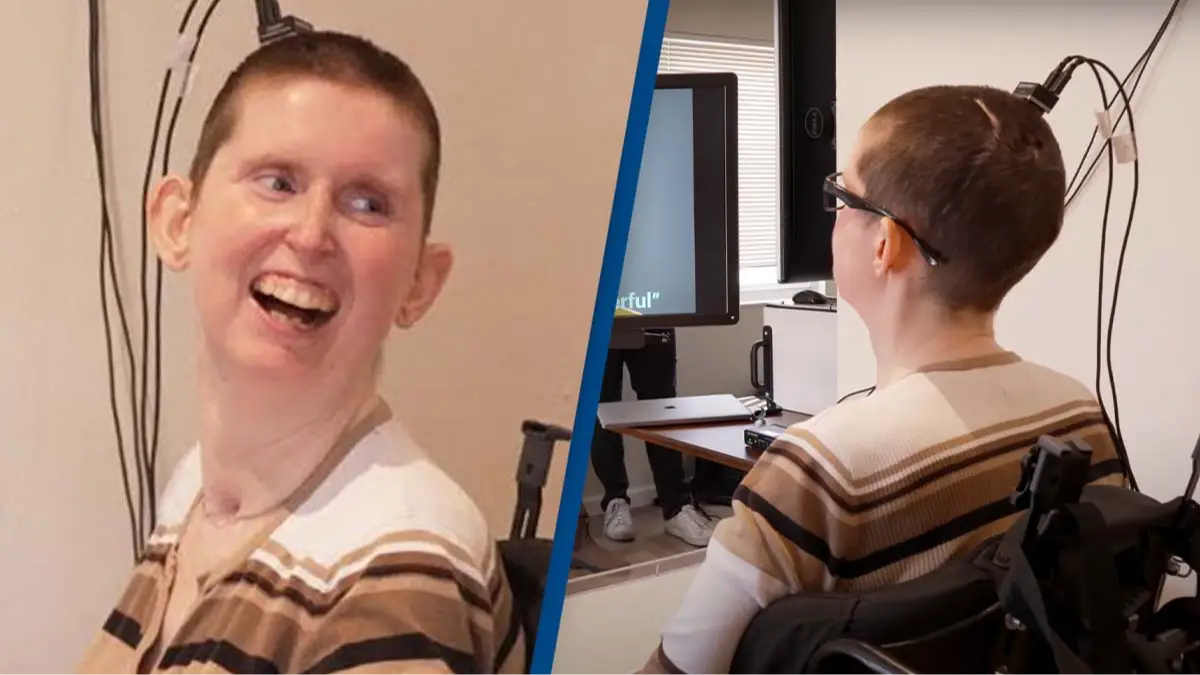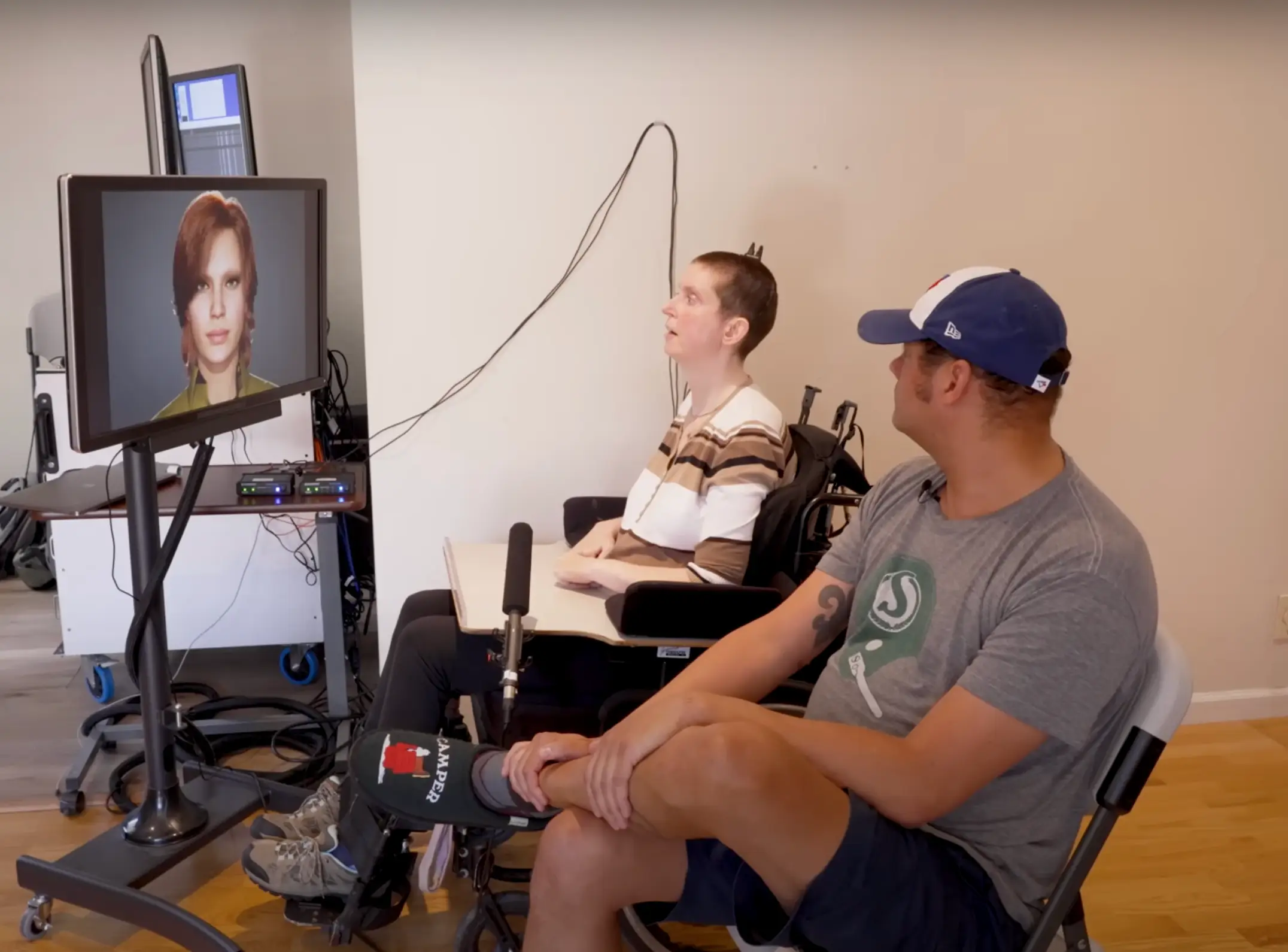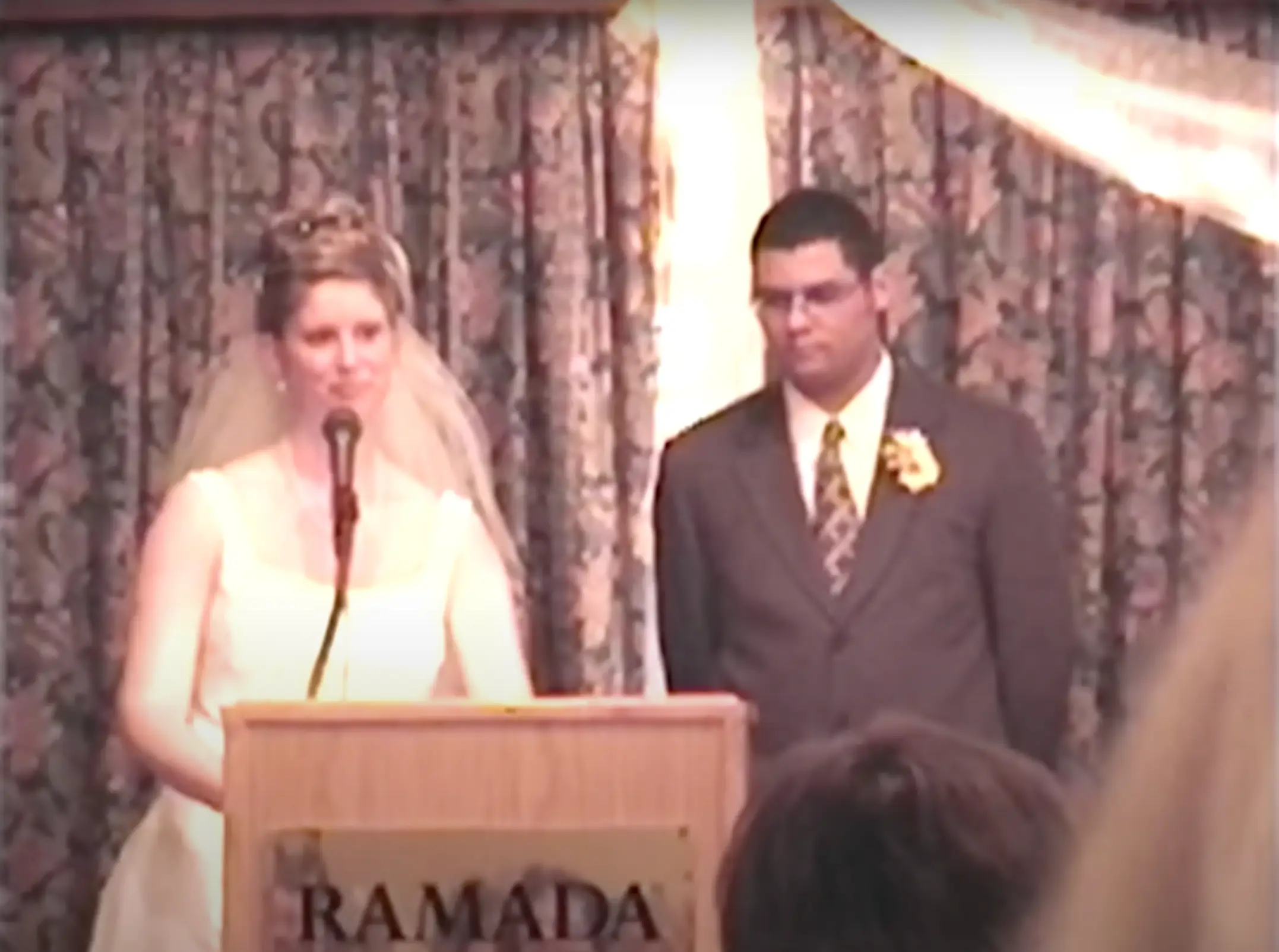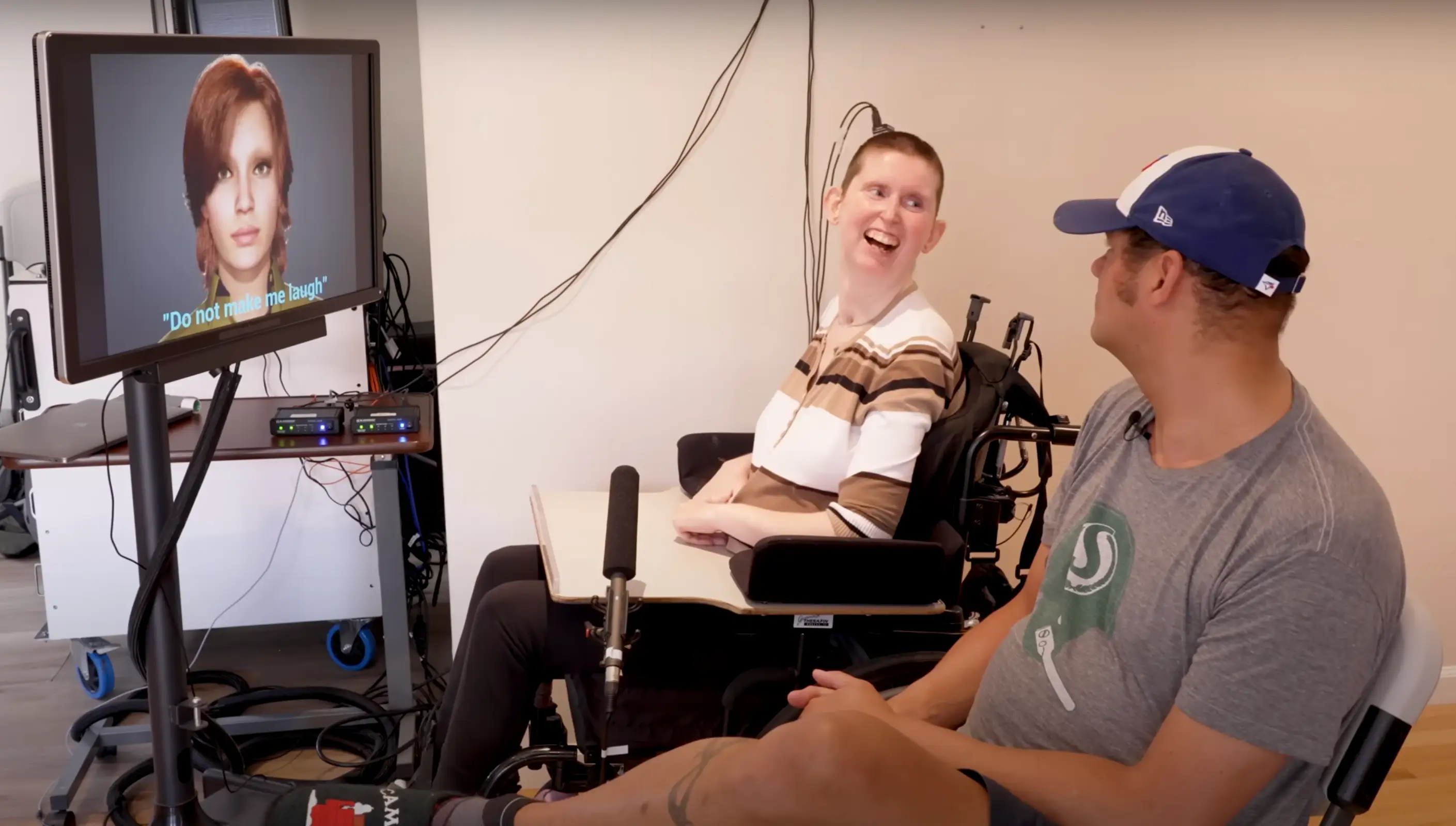
A woman who was left severely paralyzed after a stroke has been able to speak for the first time in decades thanks to a brain implant and artificial intelligence (AI).
Ann Johnson was only 30 years old when she suffered from a stroke in 2005 that left her paralyzed and unable to speak.
18 years after her stroke, a new experimental technology has allowed Johnson to communicate again by translating her brain signals into audible worlds and playing them through a digital avatar.

Advert
Developed by researchers at the University of California, San Francisco and the University of California, Berkeley, this new technology starts with an implant that contains 253 electrodes that intercept brain signals from Johnson's neurons.
The implant was placed on the surface of Johnson's brain in areas associated with speech and language.
While undergoing surgery to receive the implant, doctors also installed a port in Johnson's head that connects to a cable, allowing her brain signals to essentially be sent to a computer bank.
The computer then proceeds to use AI algorithms to translate the brain signals into words and sentences, which get spoken through a digital avatar on a TV screen.
So essentially, whatever Johnson thinks is translated into the machine and is then expressed by the avatar that was modeled after her.
To make the avatar more personalized, researchers used a recording of Johnson speaking at her wedding to model its voice after hers.
The technology also converts Johnson's brain signals into facial movements on the avatar, to give it movement like pursed lips or expressions of sadness or surprise.

According to the results of the experiment published in the journal Nature, this new technology seems to be faster and more accurate than previous systems that attempted to create a similar outcome.
One of the study's authors who also performed Johnson's surgery, Dr Edward Chang, said he was 'absolutely thrilled' to watch Johnson successfully speak through the avatar.
"There's nothing that can convey how satisfying it is to see something like this actually work in real time," Chang said at a news briefing.
The results also show that the new technology was able to convert Johnson's speech attempts into words at nearly 80 words per minute.

Chang explained the natural rate of speech is around 150 to 200. Moreover, the technology had a median accuracy of around 75 percent when Johnson was using a 1,024-word vocabulary.
Following the study, Johnson wrote in a feedback survey that hearing the avatar speak in a voice that sounded similar to hers made her emotional.
"The first 7 years after my stroke, all I used was a letterboard. My husband was so sick of having to get up and translate the letterboard for me," she said.
Johnson also went on to express that she hopes to become a counselor and use the new technology to talk to clients saying: "I think the avatar would make them more at ease."
Topics: Technology, Health
